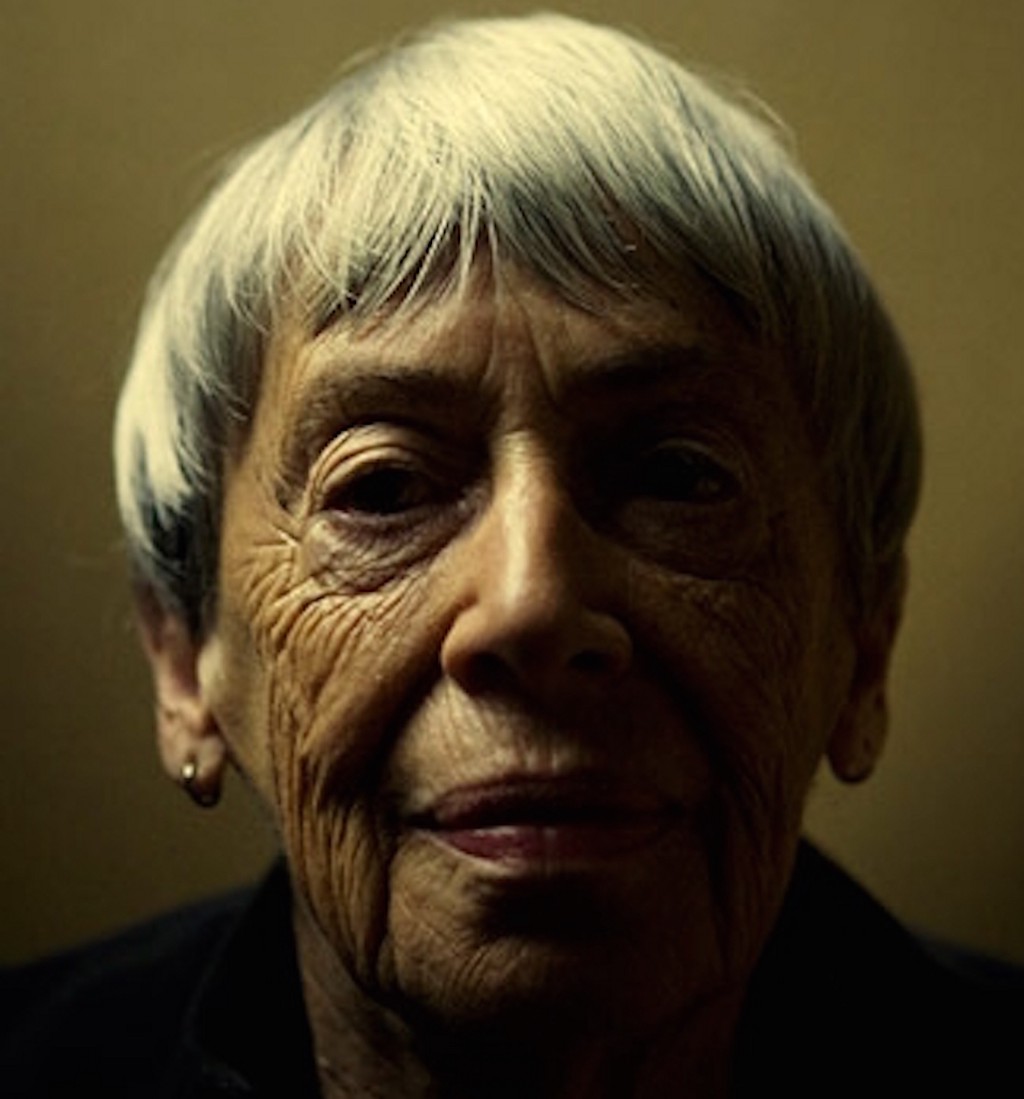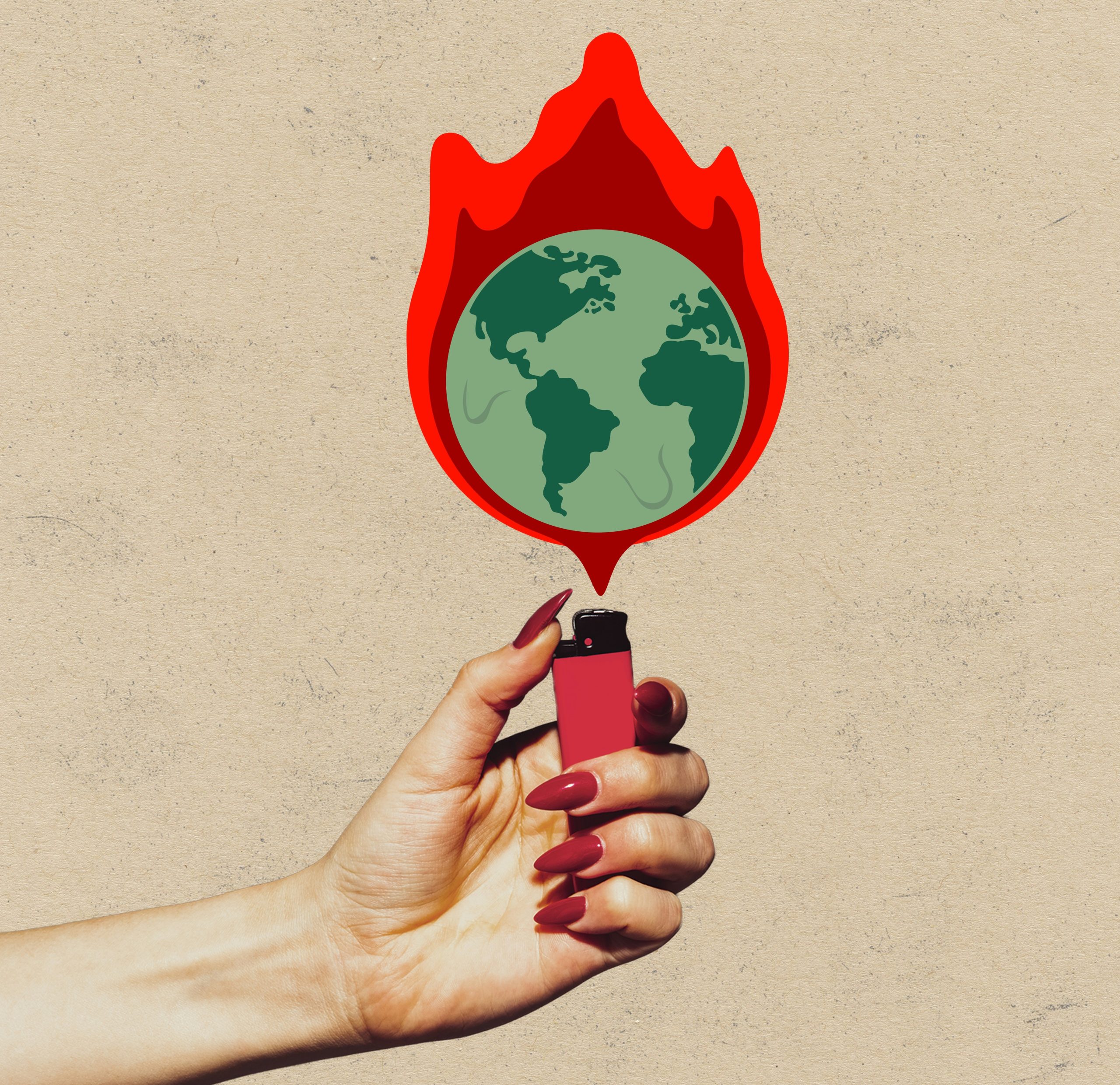essays
What a Little-Known Ursula K. Le Guin Essay Taught Me About Being a Woman
“Introducing Myself” changed my life at 16, and it’s only become more resonant in the decades since

I discovered Ursula K. Le Guin quite by accident — on the library shelf, but not in the science fiction section. I was browsing the literary journals, which were stood up like little jewels in the entranceway of the library at Willamette University in Salem, Oregon.
I had been sent to that section of the library by my speech coach — sent to find a suitably thought-provoking and emotionally stimulating passage, with less than 50 percent dialogue, that I could read aloud without rushing in less than 8 minutes.
My task was to find a piece suitable for entering in competition in the Prose category, which demands of its high school competitors that they be “a master storyteller, drawing the audience in with a well-cut and interesting piece, energy and variety in vocal inflection, and the ability to engross the listener in what is being read.”
I was not sure at all that I was any such thing, and I had no idea what I wanted to say or do. But I had propelled my 16-year-old self into this moment nonetheless, and was now spending a week of my summer vacation among the stacks of a college library, looking for a piece that I could “connect with in some way on a personal level” and that “flattered” me and my abilities, as the guidelines for Prose suggested.
It was a volume of the short-lived literary book series Left Bank that I ultimately picked up — Vol. 2, circa 1992, featuring Le Guin’s essay “Introducing Myself.” “I am a man,” she begins, and goes on to spin a sardonic fable rich with wordplay, arguing, with dripping sarcasm, that “man” is what she must be — since to be a person, one must, it seems, be a man.
That first sentence shocked me with its daring. I read the whole thing through, my heart beating faster with each new paragraph, and when I got done I walked it straight over to the copy machine and ran off two copies and rushed back to my speech coach as fast as I could go.
“We have been told that there is only one kind of people and they are men,” Le Guin writes. “And I think it is very important that we all believe that. It certainly is important to the men.”
‘We have been told that there is only one kind of people and they are men,’ Le Guin writes.
Le Guin skewers all things stereotypically masculine with dismissive wit (“I can’t write my name with pee in the snow”) while also hinting at the toxicity of masculinity (“I can’t shoot my wife and children and some neighbors and then myself”) in her litany of why she is not a “first-rate man,” but rather “a very poor imitation or substitute man.”
She touches on issues of body image when she laments that she looks “like a hen in a pillowcase” when trying to wear “those trendy army surplus clothes with ammunition pockets from the Banana Republic Company catalogues,” and manages to capture self-deprecation and mockery in the same breath.
Her writing is at once abundant, rich with metaphors, jokes, plays on words and knowing cross-references, while also being singularly focused, every word pushing her narrative forward with stunningly well-crafted focus.
All of this struck my 16-year-old self on two equally resonant wavelengths: First, there was an intake of breath at the thought that this was what writing could be: this sort of knowing, joking wit that was also deeply confessional and intimate. And second, a deeper realization that this is what being a woman could be: someone at once wise and self-questioning, seeking understanding and answers, unfeminine but not masculine, unflinchingly intellectual.
In her 2004 anthology of non-fiction writing “The Wave in the Mind,” Le Guin introduces “Introducing Myself” simply as “a performance piece, performed a couple of times.” I can only imagine what it would have been like to see her perform it. I know that when I stood up in front of the judges in my high school speech competitions, opened my little black book, and read those opening words, “I am a man,” I felt wise, powerful and a little bit wicked.
My speech coach loved the piece, and I loved it, deeply. Together we paired it with passages from “Fascinating Womanhood,” a 1960s self-help book for women that seemed to capture everything retrograde about midcentury attitudes toward women, sex, marriage and domestic life. In performances, I switched between my two “characters” — hunched over, smirking, one eyebrow raised as I growled out the opening lines; then upright, prim, bright-eyed as I doled out saccharine advice on being a happy housewife.
I didn’t become a champion of the Oregon high school forensics circuit with my piece, but I did win one of the only trophies of my entire life with it. The judges praised me for originality, for a piece that was provocative and had a point of view. I was just happy to be spending so much time with Le Guin, to have the chance to embody something of that wise, powerful and slightly wicked spirit.
Le Guin’s words have echoed in my mind throughout the decades since I first read this deeply felt and even more deeply thought gem of an essay. On first reading, what struck me was Le Guin’s sense of resignation, of confession, of having worked for too long in service of an impossible goal — to live in a man’s world.
On first reading, what struck me was Le Guin’s sense of having worked for too long in service of an impossible goal — to live in a man’s world.
“I look back on all my strenuous effort because I really did try, I tried hard to be man, to be a good man, and I see how I failed at that,” she writes.
I am not sure how I knew, even at 16, that I would become a woman who, like Le Guin, owns three bras and feels that she is shaped wrong and is not as tough as she ought to be. A woman who sheepishly tweaks out the nine or 10 hairs that grow on her chin. A woman who can’t seem to find the right foothold among the available options of masculine and feminine — who feels, as Le Guin wrote, that “if I had any real self-respect, wouldn’t I at least have had a facelift or some liposuction?”
As I have aged, my relationship to the feminine has remained complex. I think of Le Guin often when I look in the mirror at my messy brows or contemplate my unshaven legs. I feel vaguely urged to do something about these less-than-feminine aspects of myself. But, like Le Guin, I do not. It does not seem to be part of who I am now, any more than it was when I was 16, and shocked the freshman in my art class, who would run up, giggling, in packs, and ask, “Can we see your hairy legs?”
I fear that I may have taken too seriously Le Guin’s cynical suggestion of equating femininity with non-personhood and have, like her, ended up on a sort of third road of being some sort of “poor imitation or substitute man.”
But as my 40th birthday approaches, I have found myself coming back, not to Le Guin’s electric opening line, but to her wry ending salvo, in which she threatens, at age 60, to “give the whole thing up” and “start pretending to be an old woman.”
“I am not sure that anybody has invented old women yet,” she writes, “but it might be worth trying.”
I think of Le Guin often when I look in the mirror at my messy brows or contemplate my unshaven legs.
Several years ago my mother, who is older now than Le Guin was at the time she wrote “Introducing Myself,” confided in me about aging.
“The great thing,” she said, “is that I just don’t have to give a fuck anymore.”
Like my mother, and Le Guin, I am learning how to be what I am — still learning from Le Guin these many years later. Learning how to not give a fuck anymore. Learning to give the whole thing up and invent something new. May we all face our own futures with a fraction of Ursula K. Le Guin’s wit, insight and acuity. She has left us so many gifts to help us find our way.








